The Scot who began the two-minute silence
- Published
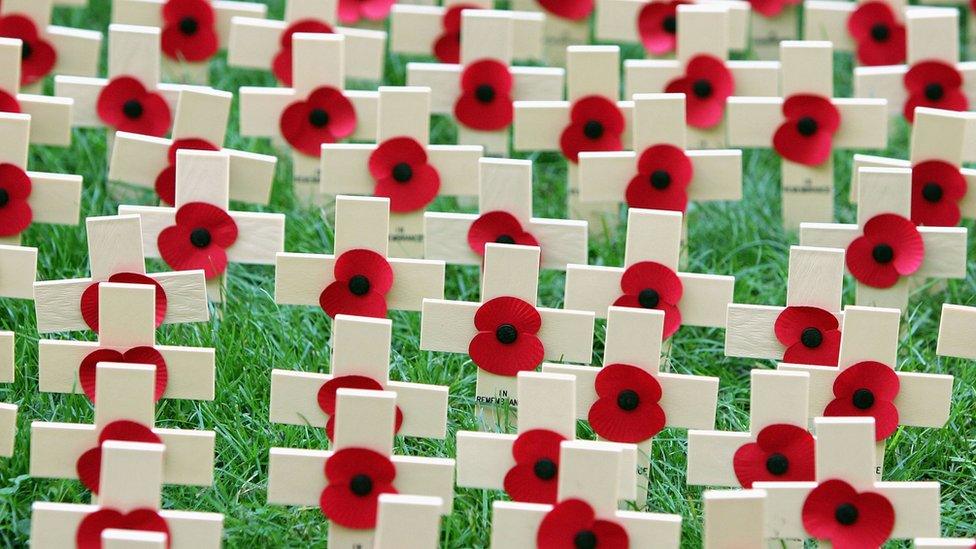
A two-minute silence on Armistice Day has been observed since the first anniversary of the end of World War One in 1919. But what is perhaps less well known is that the idea for the silent reflection came from a Scot who lived in South Africa during the conflict.
Robert Rutherford Brydone was born in Edinburgh's New Town in 1862 and was a pupil at the city's George Watson's College.
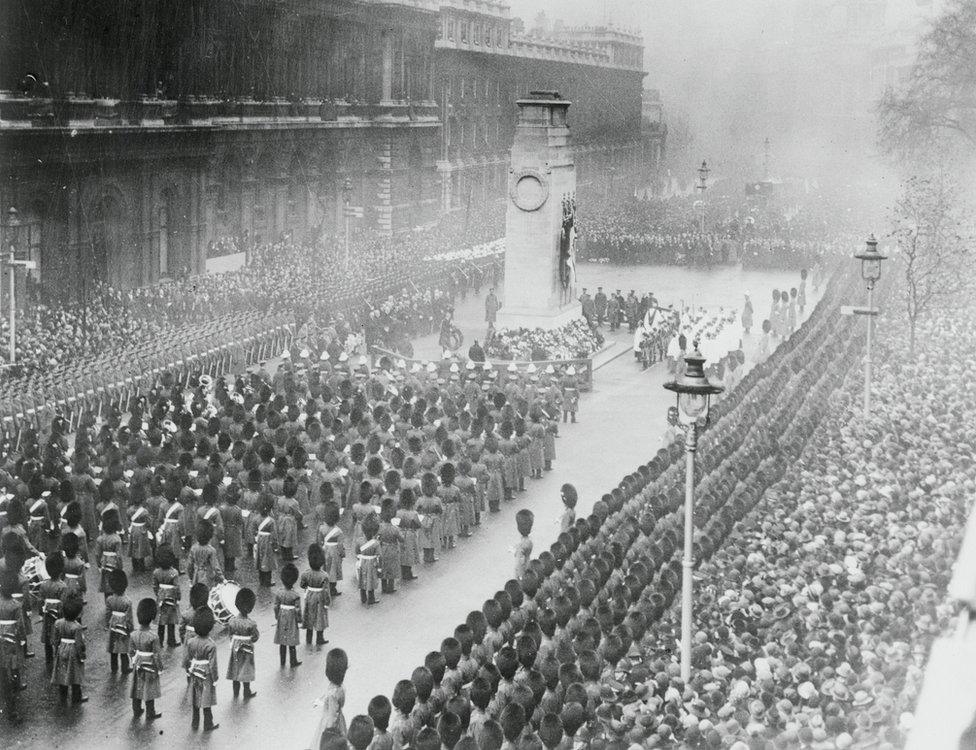
Armistice Day at the London Cenotaph in Whitehall in 1925

According to research by writer and educator Joan Abrahams, Mr Brydone emigrated to South Africa when he was 22 and carved out a successful career in insurance.
During World War One, Mr Brydone, by then in his 50s, was a member of the town council in Cape Town.
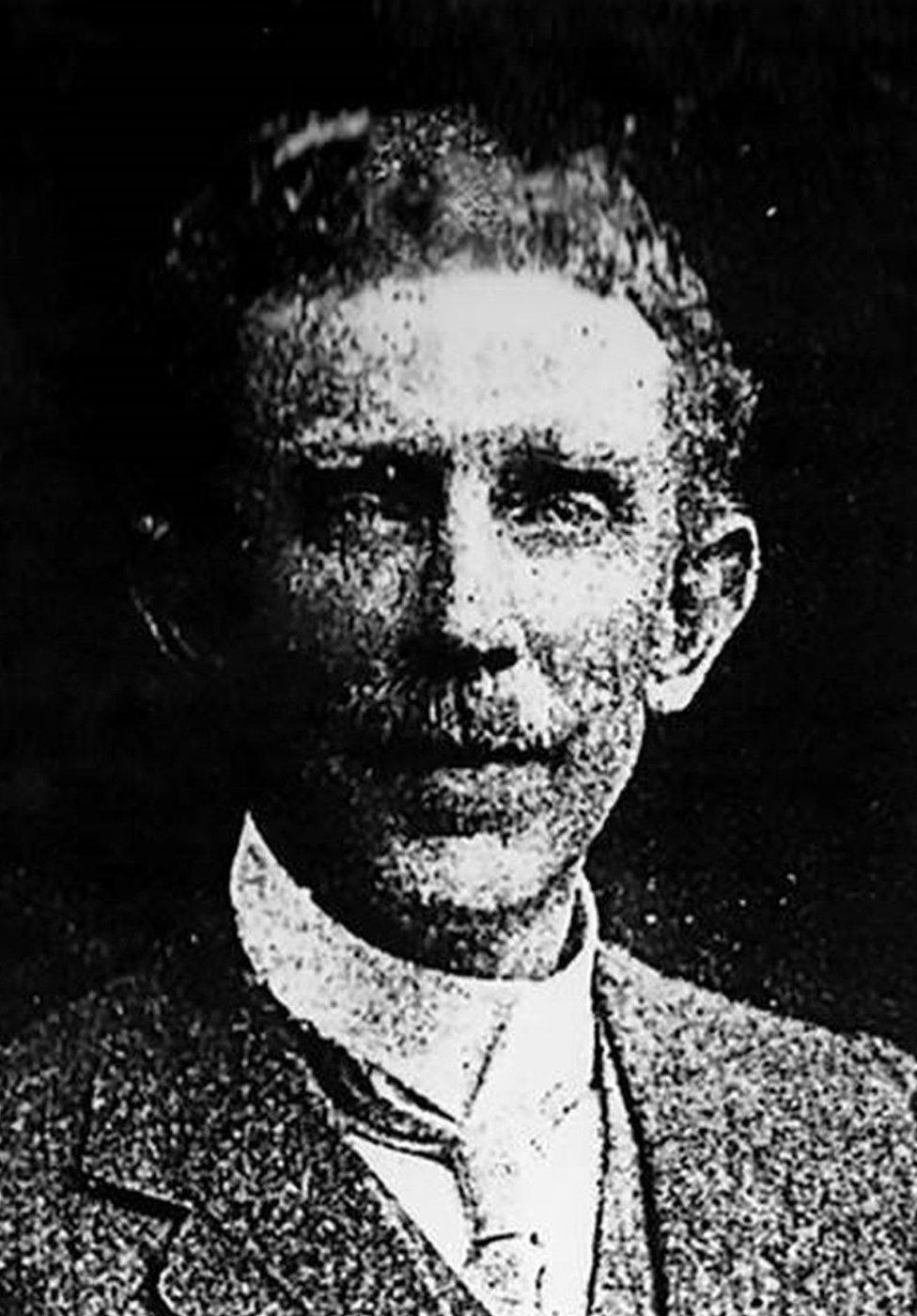
Robert Rutherford Brydone was born and raised in Edinburgh

Ms Abrahams' research says Mr Brydone was actively involved with the recruiting meetings in the city's Drill Hall.
At a meeting held early in 1915, it is reported a man in the audience said: "You will forget us as soon as we are gone."
Mr Brydone is said to have promised that the city would not forget its sons during their absence.
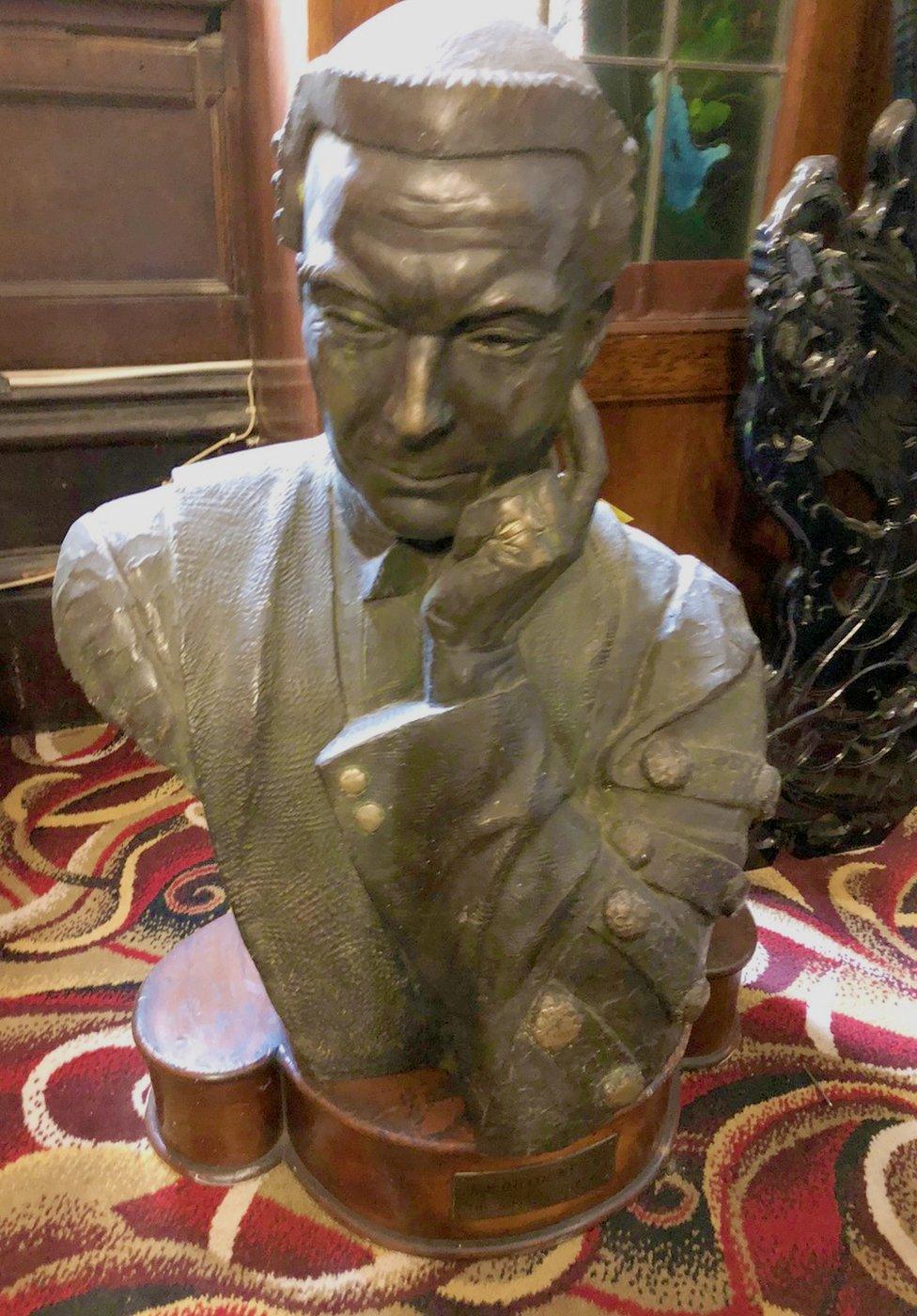
A bust of RR Brydone gifted by the Cape Town authorities

As an outward sign, he arranged a monthly meeting to remember the soldiers fighting in Europe.
In early 1918, Mr Brydone and Cape Town mayor Sir Harry Hands decided to take the remembrance further.
The death of Sir Harry's eldest son in the war led them to consider new ways of marking soldiers' sacrifice.
Mr Brydone suggested the firing of the city's Noonday Gun could mark a "pause" in activity during which people could pray for the men fighting in the war.
According to Ms Abrahams, Mr Brydone and Sir Harry organised an area of the city where the traffic would be brought to a standstill for the duration of the pause and the first silence was observed at Cartwright's Corner in Adderley Street on 14 May 1918.
As soon as the city fell silent, a trumpeter on the balcony of the Fletcher and Cartwright's Building on the corner of Adderley and Darling Streets sounded the Last Post.
The Reveille was played at the end of the midday pause.
Articles in the newspapers described how trams, taxis and private vehicles stopped, pedestrians came to a halt and most men bared their heads.
The pause was originally three minutes but was reduced to two "in order to better retain its hold on the people".
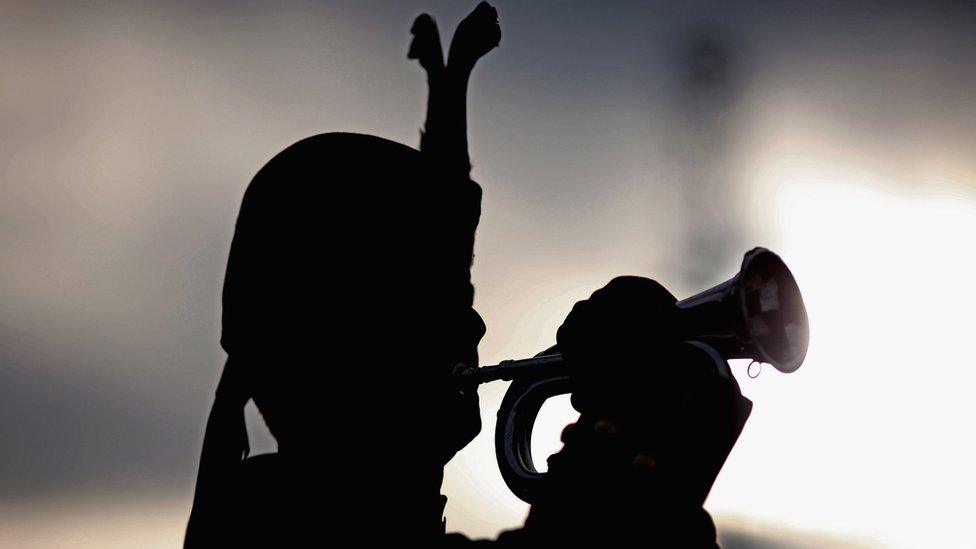
It was repeated daily for the duration of the war and only ended in December, after the conclusion of the conflict.
The stated aim of the pause was silent remembrance, fulfilling a debt of honour to the fallen and demonstrating to those who survived that the sacrifice of the dead did not go unnoticed or unappreciated.
Another South African, Sir Percy Fitzpatrick, is rightly credited as being the driving force behind the annual two-minute silence on Armistice Day.
He took the idea to King George V who introduced it on the first anniversary of the end of the war and it has been repeated around the world ever since.
However, Ms Abrahams says Sir Percy acknowledged that the idea came from Mr Brydone's Cape Town pause.
He said that other towns followed its example but "nothing was as dramatic as the Cape Town observation simply because of the midday gun".
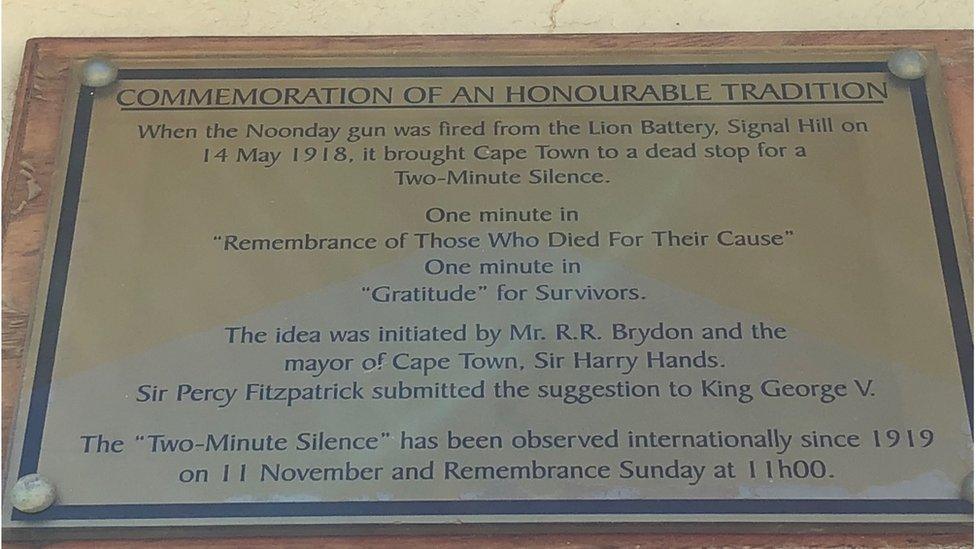
In Cape Town there is a plaque entitled "commemoration of an honourable tradition".
It reads: "When the Noonday gun was fired from the Lion Battery, Signal Hill, on 14 May 1918, it brought Cape Town to a dead stop for a Two-Minute Silence.
"One minute in 'Remembrance for those who died for their cause', one minute in 'gratitude' for survivors.
"The idea was initiated by Mr RR Brydon and the mayor of Cape Town, Sir Harry Hands.
"Sir Percy Fitzpatrick submitted the suggestion to King George V.
"The 'two-minute' silence has been observed internationally since 1919 on 11 November and Remembrance Sunday at 11h00."